How MATES Works
MATES field staff will train workers in the workplace to improve mental health and suicide prevention literacy, increase help seeking and help offering and engage the workforce in creating a mentally healthy workplace.
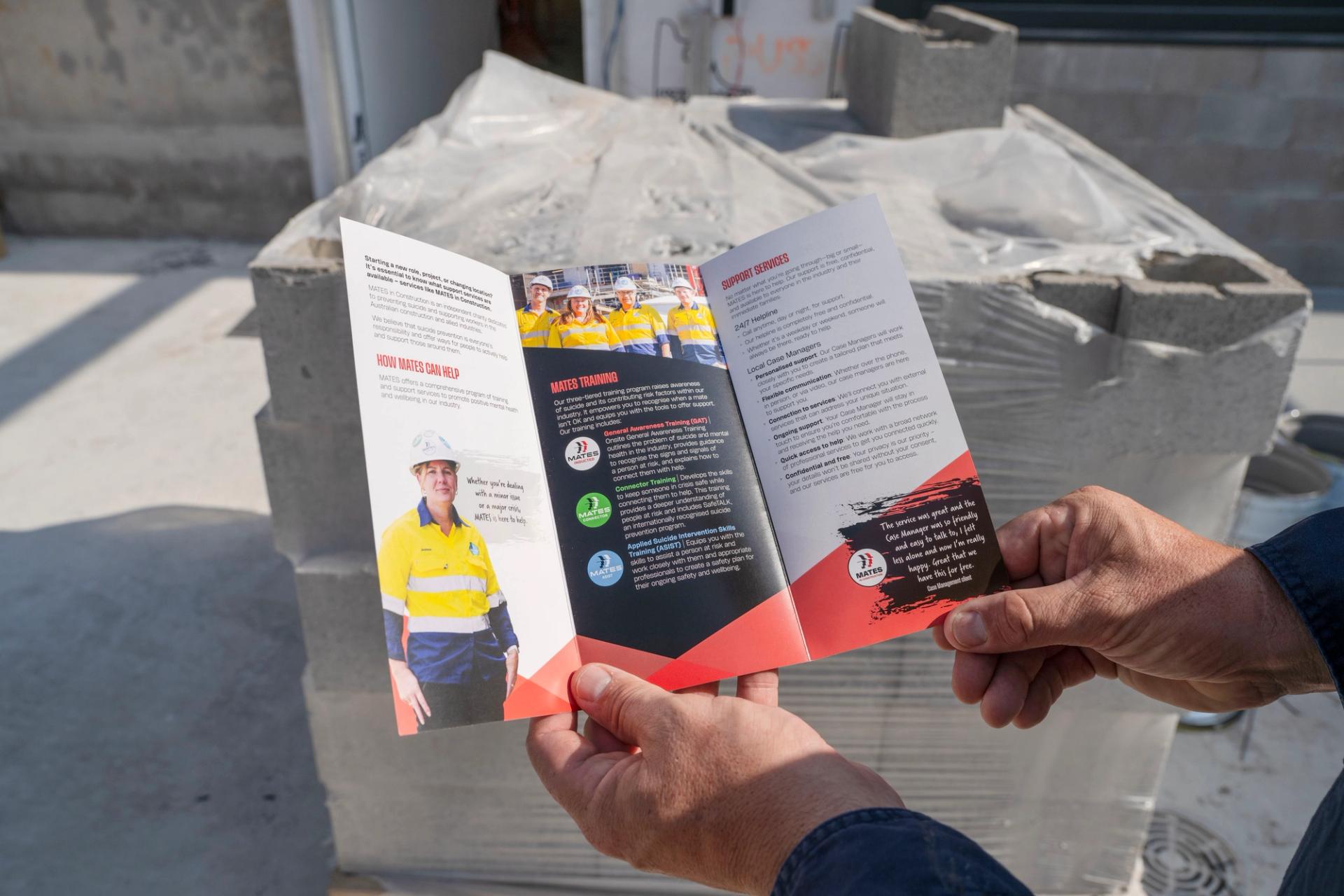
Our Approach
What is the MATES model?
The MATES Model is a comprehensive, industry-backed approach to tackling mental health challenges and preventing suicide in the workplace.
It’s all about connection - creating a supportive environment where workers look out for each other, feel empowered to speak up, and know where to turn for help.
At its core, the MATES Model:
- Raises awareness of suicide as a preventable issue
- Builds stronger, more resilient workers
- Connects workers to the best help and support available
- Partners with researchers to drive real, lasting change across industries
MATES Field Officers work directly on site, training workers to:
- Understand mental health and suicide prevention
- Recognise when a mate might be struggling
- Feel confident to offer help or reach out
We train volunteer Connectors and ASIST-trained workers to safely support someone in crisis and connect them to professional help. These volunteers become key points of contact, creating on-site networks that support each other and help build a mentally healthier workplace.
MATES also offers a 24/7 support line and case management for workers who need extra help.
We back all of this with research and evidence — partnering with leading researchers to make sure the work we do is effective and keeps evolving. One example is the Australian Building and Construction Industry Blueprint for Better Mental Health and Suicide Prevention, which helps guide best practice across the industry.
Training
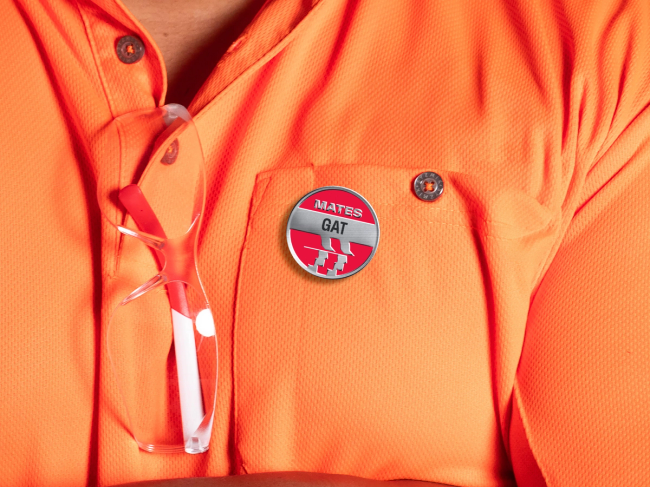
GAT
General Awareness Training (GAT) is delivered to at least 80% of on-site workers, focusing on mental health awareness and suicide prevention. This training is delivered en masse and on-site. It introduces workers to the nature of the problem, that it's ok to talk about mental health and provides practical guidance as to how they can spot the signs of a workmate in distress.
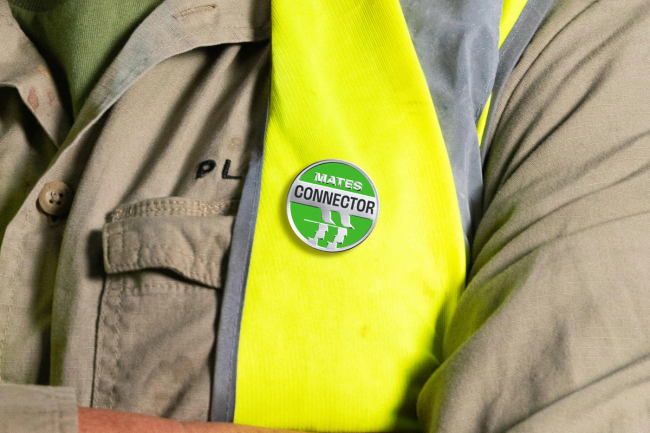
Connector
Connector training is for anyone on site who puts their hand up to be there for their mates. Connectors are trained to safely support someone in crisis and connect them to the right help. Connectors are trained to listen, spot the signs, and take the next step to keep someone safe.
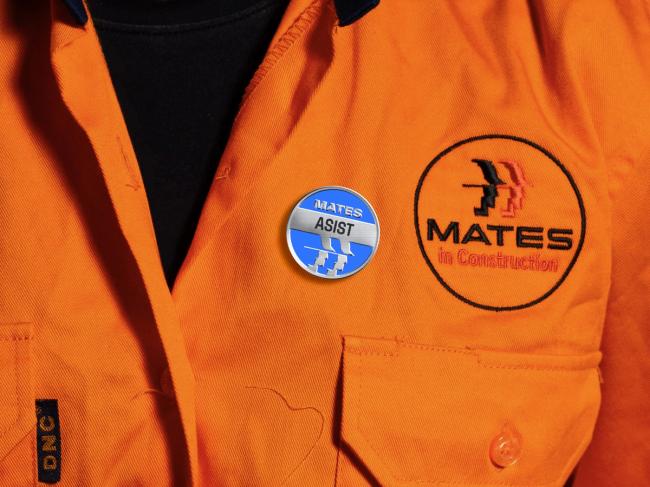
ASIST
Applied Suicide Intervention Skills Training (ASIST) equips individuals to become an ASIST worker - comparable to the first aid officer on-site, but for mental health and suicide prevention. ASIST-trained workers are equipped to talk to a person who may be thinking about suicide with the goal of making this person 'safe'. Using simple skills, an ASIST worker will listen to the person's concerns and respond to them appropriately with the aim of reaching a 'safe plan'.

Site Accreditation
The gold standard is to achieve 'MATES Accredited Site' Status.
Embracing the MATES program makes work sites safer, more productive and more supportive of workers, and demonstrates a real commitment to workplace safety and mental health and well-being of all workers.
Support
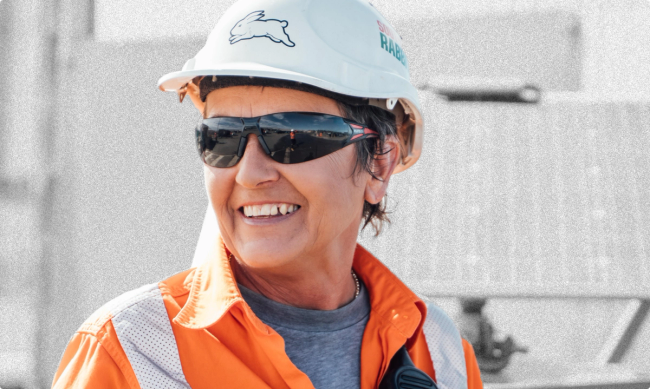
Case Management
MATES employs qualified case managers to help workers address their issues by connecting them with relevant local services, such as EAPs, financial counseling, and grief support. Follow-up is conducted to ensure effective assistance, and advocacy is provided to ensure services meet workers' needs.

Site Visits
MATES Field Officers visit sites within their region to establish and support the MATES program. They provide training, conduct toolbox talks, and engage with workers, offering ongoing support through regular visits, posters, and interactions with Connectors and ASIST workers.
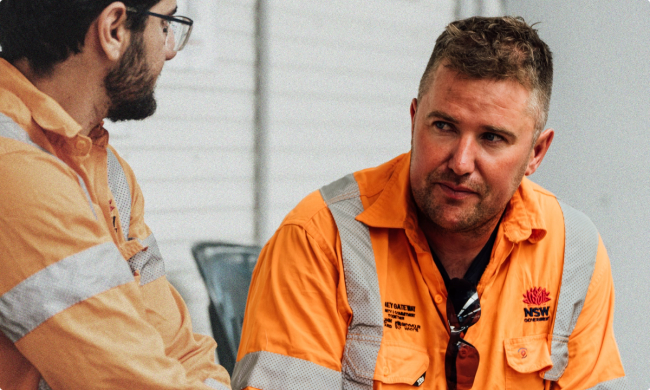
Critical Incidents
MATES supports sites after critical incidents, which can impact workers' safety and mental health. When invited, MATES staff help by recharging the local network of Connectors and ASIST workers, ensuring they monitor their peers and provide necessary support.
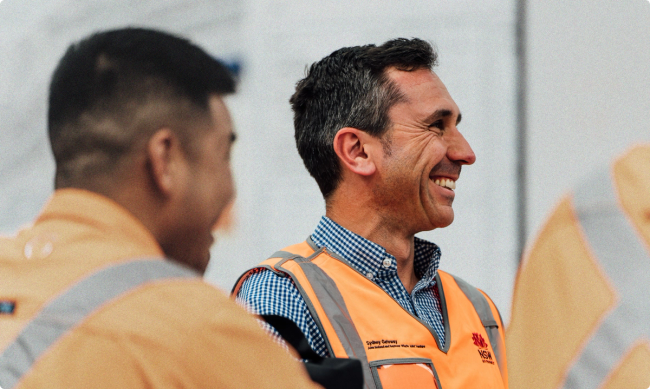
Postvention
Postvention offers support after a worker or their family member has died by suicide. While MATES focuses on prevention, it also provides essential help to those grieving, addressing complex emotions and unanswered questions to ensure appropriate support and aid during the healing process.
